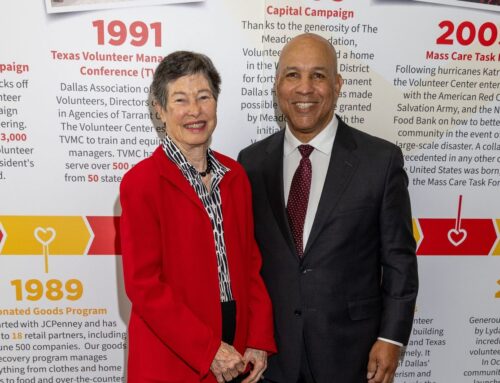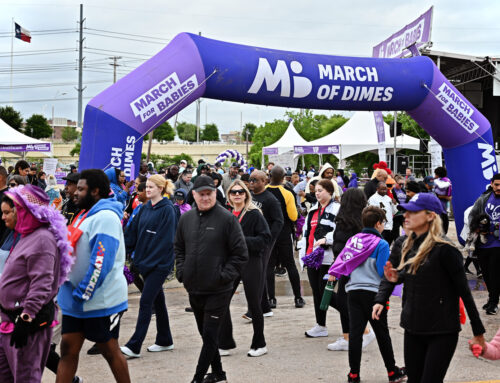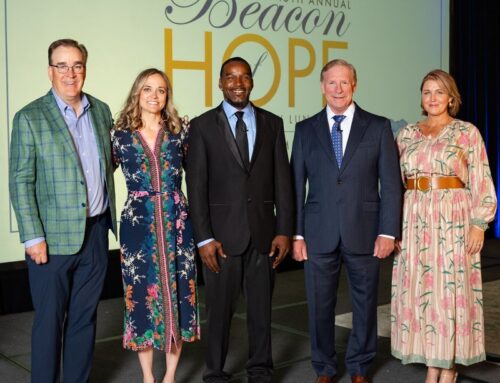
Photo courtesy of Nexus.
Nexus Recovery Center is the largest female-only substance use disorders center in Texas. Last October, Nexus broke ground on the Doswell Medical Building for its new campus to expand capacity, set to open in 2025.
In honor of International Women’s Day, the Advocate talked with its CEO Heather Ormand about Nexus, its future and how it has helped women in recovery celebrate their milestones.
Can you tell me about Nexus Recovery Center and how it got started?
Nexus was founded 53 years ago by five women in the DFW area who were in recovery themselves. They noticed there were no female-only treatment options; they were all coed. Being female-only is crucial because sobriety and recovery demand an extreme amount of vulnerability and honesty. A coed setting can be distracting, and many women have experienced trauma at the hands of males and are not as trusting or willing to be open. These founders were amazing. In addition to being female only, we allow moms to bring up to three children into residential services with them for 90 days. While mom is getting treatment, her kids attend our Child Development Center, which is more than a fully licensed daycare. We also provide speech, occupational, and physical therapy to those kids. We serve 110 women in residential treatment on our campus and up to 200 in our outpatient services.
How has [Nexus] been able to help women with sobriety?
We start with medical detox, which manages withdrawal symptoms. Many people struggle in those first five days to two weeks because the withdrawal is unmanageable. It’s kind of like taking the training wheels off. You’re in a safe bubble in residential treatment, not paying rent or dealing with outside community members. Then, when you go back home, there are all sorts of triggers. But you’re still coming to campus three to five times a week or meeting with your counselors. You still have that pretty close-knit support network. We also provide recovery support services and coaches These are women who are in long-term recovery themselves and are certified to work with peers. They start building relationships when our clients are in residential treatment and stay with clients as long as they wish to engage. We provide additional mental health support as well. All our services are at no cost to our clients. It’s really important to provide these services at no cost because they don’t have many options, with 30% homeless and about 80% looking for safe and supportive housing. We provide a supportive network for them while they’re looking for housing or getting back on their feet. It’s a community of women helping women and we let them know that there is fun and levity in sobriety and that even when they hit the hard times or bumps in the road, we’re there for them.
How does this center compare to other treatment centers in North Texas or just Texas in general?
There are only seven treatment centers throughout the state that allow women to bring children with them. We are the only ones that provide a full array of services to the children as well. There are no other female-only detoxes in the DFW area. We are the only gender-specific treatment provider.
Can you tell me a little bit about you? How did you get started with Nexus and how did you grow in the company?
I am a woman in long-term recovery; my sobriety date is January 11, 2011. Through getting sober and feeling so much gratitude for my life, and how much things were changing and getting better. I wanted to do something more meaningful. I went on a spiritual journey, got my Master’s in Counseling, and realized direct care wasn’t for me due to boundary issues. In 2013, I became the CFO at the Dallas Children’s Advocacy Center, which was a better, safer route for me. While at DCAC, I continued on my sobriety journey, met my husband, we had our children and then I was trying to figure out what my next move was. I said multiple times I would love to give back to other women in sobriety or recovery, but I don’t know what that looks like. And the CEO of Nexus announced her retirement in 2020. It wasn’t an ideal time. It was the best thing I ever did. There were certainly hard days but I get to see miracles happen every day. Over half of us who work at Nexus are sober and on our active recovery journey. We’re 98% female, women helping other women.
What would your advice be to women who are trying to get into CEO positions or any leadership positions especially when it’s a male-dominated position?
Be your authentic and true self. Anytime I tried to be what I thought others expected me to be, it never served me well. The more I’ve been true to who I am and authentic, the more successful I’ve been. This has been the most rewarding and hardest thing I’ve ever done. If I had known all the challenges that would be presented, including those from COVID, I might not have proceeded. But taking that leap of faith and knowing it will be okay is key. If you bring your authentic self to the role, you can do it.






